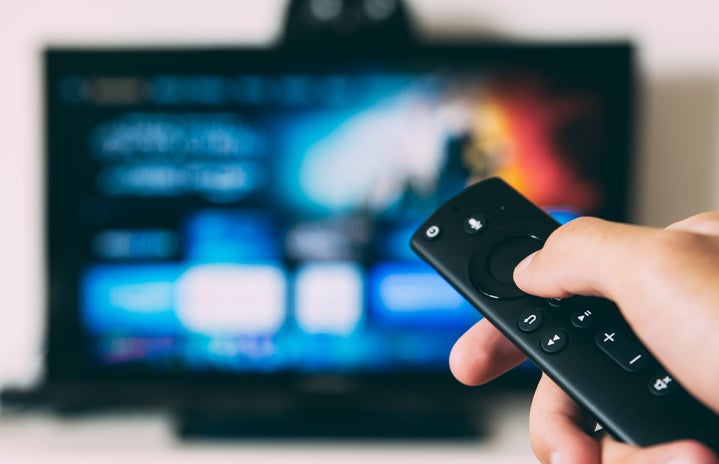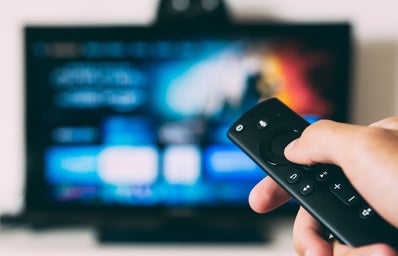Watching superhero media is less a hobby of mine and more of a devout religion. I was seven when the first episode of “Young Justice” aired, the same age I decided to pledge my allegiance to DC, and when the Avengers movie came out two years later, I pledged the same to Marvel.
This is why it hurts me to say that the past few years of shows and movies have left me incredibly underwhelmed and disappointed. Nowadays, if it’s not a bloated mess of poor writing and bad character development, then it’s a canned spiel you’ve heard a million times before, with a cheap one-liner every five minutes and green screen backgrounds galore.
So when my brother sat me down and forced me to watch the first episode of “Invincible”, I thought that it was going to be yet another Justice League knock-off: a seemingly promising story that would get my hopes up before clotheslining me with reality and kicking me back into the dirt, where I would wallow in my despair and the broken dreams of what could have been.
Much to my surprise, “Invincible” did none of these things. It was refreshing—no, rejuvenating—after years of formulaic story-telling from Marvel and DC. Also, the season finale destroyed me beyond an emotional level, and because I am the person I am, I’m going to make it everybody else’s problem.
Let’s dive in.
(Spoilers for the first episode ahead!)
“Invincible” follows 17-year-old Mark Grayson, the son of the world’s most powerful superhero, Omni-Man, as he grows and develops his newfound powers. This premise gives the story a friendly, unassuming air; however, as the official synopsis states in ominous foreshadowing: Omni-Man is not as heroic as he seems.
The “Superman but evil” trope has been beaten to death at this point. “Batman V Superman,” “Homelander,” “Brightburn”—it’s all been done, I know.
Believe me, though—“Invincible” does it better.
The whole first episode is pretty standard, as far as first episodes go. We’re introduced to this comic-style world, where skirmishes between superheroes and villains are so commonplace that military officials need to be trained to dodge eye lasers. There are dozens of superhero teams around the world, the most elite of which is the Guardians of the Globe, a parody of the Justice League.
Despite the world-building being far from creative, I was still able to appreciate the setup. The animation style was reminiscent of those old superhero cartoons I remembered watching as a kid, which gave it an air of nostalgia. I ended the episode charmed by the protagonist and overall enjoying the progression of the story, though nothing quite stood out about it yet.
Then came the end credits scene.
I’d been bracing for the “reveal” of Omni-Man’s legacy, after reading the show’s blurb. I expected something dubious, something that was arguably morally gray, as that was what most media tended to stray towards when dealing with this type of narrative.
I was not expecting Omni-Man to cold murder the Justice League onscreen.
Up until that point, the show had been pretty light-hearted, with catchy music in the background and funny, sometimes cliche dialogue between the characters. Whenever there was a fight, it was full of flashy action with minimal bloodshed. There was a line drawn, a line that had been pre-established by every other superhero show and movie I’d watched, that had been clarified by the previous 45 minutes.
Every single thing that happens in the last five minutes crosses this line. Omni-Man fights the Guardians, for reasons unknown to all but him. They hold their own well until Red Rush—this universe’s version of the Flash—gets grabbed. The music crescendos to a loud buzz as Red Rush tries to punch his way out of Omni-Man’s hold, as Omni-Man slowly crushes his skull between his hands, and you as the audience are forced to witness every second of it. You see Red Rush’s eyes bulge out of his face, you hear the bones cracking, you see him break his hands in his desperation to save himself. You see the blood and viscera of the aftermath and the horrified anguish of his teammates when he doesn’t succeed.
The tone shift is brutal. There is no music for the rest of the scene as Omni-Man makes quick work of the rest of the Guardians. The message that the narrative has crossed into new territory is made loud and clear.
Here’s where “Invincible” stands out from the rest in its genre.
First, there’s no false power equivalency. You’re not going to have a “Batman V Superman” situation, because—and don’t get me wrong, I love my man Bats—if Superman had been serious, he would’ve torn Batman apart like wet tissue paper.
It’s blatantly obvious that every single superhero is outmatched by Omni-Man, and considering what he’s capable of and the now very real possibility that he is not on Earth’s side, that’s terrifying. It’s a huge problem, and it makes for a fantastic story. There’s no room for the hero and villain throwdown that you see in every other movie. Establishing this means the story needs to be original and inventive, and as unbelievable as it is, the writing really comes through in this show.
Second, if you haven’t caught on by now, this show is not for kids, and it’s definitely not for the squeamish. “Invincible” is quite disturbing and hard to watch at times. After all, our protagonist is forced to descend into the harsh reality of what being a superhero really means, as well as the dark legacy of his father.
Usually in movies, when the heroes fight, it’s only about the heroes. Even when collateral damage is brought up, it’s still in the context of a bigger conflict. “The Incredibles,” “Civil War,” “Batman V Superman” again—it’s been covered over and over, but the subject is always pushed behind the curtain as a subplot and packaged in a way that lets us still enjoy the idealistic power fantasy of superheroes.
“Invincible” is a well-married blend of comedy and darkness, but when it needs to drive the knife home, it drives it deep. It’s gory, but not indulgent like a horror movie. It’s tragic, but not performative like a drama. It draws lines in the sand and then crosses them over and over again, in new and clever ways that leave you shocked each time. Fantastic voice actors like Steven Yeun, Sandra Oh, and J.K. Simmons perfectly capture the emotional gravity of these situations, and the tension never runs stale, with every scene having as much impact as it needs to.
Finally, and what I most appreciate about “Invincible”, is that it leaves you thinking, instead of turning your brain off for however long it takes for you to exit the theater.
Nobody said that superhero media can’t be fun, and “Invincible” is, very much so. However, the problem with recent movies and shows is that they’re a lot like rollercoasters, in that they just exist to shuffle people into mass-produced seats for a good time and then make money off them.
There are many gray topics that “Invincible” brings to the table, that warrant lots of thought and discussion. It’s not just a show where several stone-faced men run at each other cinematically before beating each other up. There’s substance to it.
I have gripes about the show, of course. Do I think some of the side plots were tedious? Yes. Is the writing lacking when it comes to supporting characterization? Absolutely. Do I still think the show is worth watching? Definitely so.
If you’re someone who likes superheroes but has felt let down by recent media, I urge you to give “Invincible” a try. I promise you won’t regret it.


